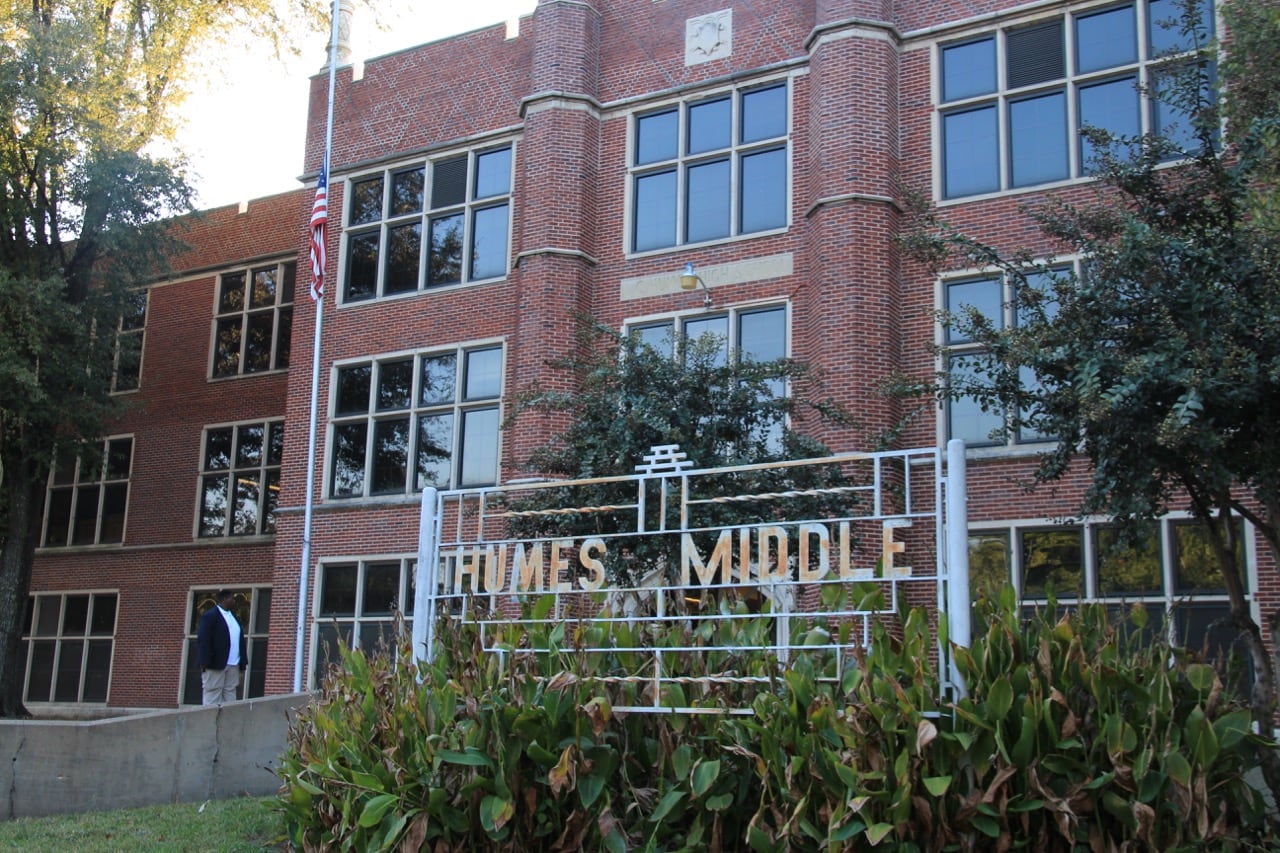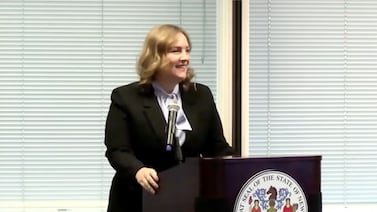Chalkbeat is a nonprofit news organization covering public education in communities across America. Sign up for Chalkbeat Tennessee’s free daily newsletter to keep up with the Shelby County public school system and statewide education policy.
The Memphis-Shelby County Schools board on Tuesday denied initial applications from 10 charter schools, including several low-performing schools that are seeking to return to the district as charters after a failed turnaround effort by the state.
It is typical for the district to recommend denials in the initial round of applications, and ask applicants to revise their proposals. The board will make final determinations on the charter school applications later this summer, after applicants have a chance to make requested revisions.
The board took up the 10 applications in two batches. One was a group of existing schools leaving the Achievement School District, the state turnaround program for low-performing schools. The other is a group of new proposed charters, primarily from operators that want to offer career and technical education programming, a new state priority.
The set of charter applications before the board show the impact in Memphis of two things happening at the state level: the chaotic unraveling of Tennessee’s charter-focused school turnaround effort, and this summer’s arrival of a new state education funding formula that provides extra money for career education programs.
The five schools from the ASD were once operated by the district. When the state designated them as low performers, it assigned them to charter operators to reform under 10-year contracts. State leaders have acknowledged for years that the turnaround effort failed.
Now, as the 10-year contracts near expiration, the school operators are applying to continue managing the schools as charters under the MSCS umbrella. That’s one of the possible exit routes outlined by the state for ASD schools, most of which are in Memphis.
Board member Stephanie Love appeared to suggest the ASD schools, which have high academic needs, should undergo a different process.
“I don’t think the ASD should be treated as a regular charter school,” said Love, whose district includes several of the schools.
MSCS, board forced to reckon with fallout of ASD
The five Achievement School District charters that sought approval from the MSCS board are Humes Middle School, Martin Luther King Jr. College Prep High School, Cornerstone Lester Prep Elementary, Journey Coleman School, and Fairley High School.
The ASD applicants lost points for lacking details in their proposed transition plans to the district. They were also dinged for remaining low-performing. Low academic performance regularly puts Memphis charter schools in jeopardy of closure.
“It appears to me that they’re still just floating money in a sinkhole,” board member Keith Williams said of the schools in a recent committee meeting.
The board has approved one ASD school to operate as a charter, but that school has not yet opened. Other former ASD schools have reentered the district’s own turnaround program called the iZone, which brings students at traditional public schools additional academic support. The program isn’t available for charter schools.
MSCS board members have started discussions about reabsorbing the other ASD schools as traditional public schools under the iZone. This could happen if the charter applications are rejected again by the MSCS board and by the state charter commission.
Dozens of Fairley High School students, families, and staff members urged the board on Tuesday to approve the bid by their charter operator, Green Dot Public Schools Tennessee, to continue running the school.
“Growth matters … . We are proud of the work we have done to support Fairley High School, and we look forward to continuing to support Fairley and the Lakeview community,” Jocquell Rodgers, the executive director of Green Dot, told board members.
Research has shown turnaround models like the iZone and the ASD are hard to sustain. Board member Amber Huett-Garcia requested data to compare the performance of ASD charters against MSCS’ lowest-performing schools in the iZone.
During a committee meeting, Huett-Garcia said she was unsure how the ASD charters offered something “different than what we do” at MSCS.
The board’s ultimate decisions about the ASD schools are likely to intersect with its upcoming facilities plan. State law says that MSCS regains control of the physical school building once a school exits the ASD, and MSCS has indicated its facilities plan could include decisions about the ASD school buildings. A new Frayser high school, for instance, would mean MLK College Prep closes.
New career and tech applicants part of ‘next wave’ of charters
The five new charter schools seeking approval from MSCS are Memphis Grizzlies Prep STEAM School for Girls, Empower Memphis Career and College Prep, Change Academy, Pathways in Education-Memphis, and Tennessee Career Academy.
Three of the five have a career and technical education focus.
Career and technical education “is kind of this next wave” of charters across the state, Brittany Monda, the district’s assistant superintendent of charter schools, told board members recently. Previous waves have been college prep-focused or STEM-focused, she said.
Tennessee’s new school funding formula uses a per-pupil funding model, with direct funding allocations for career and technical education.
MSCS officials said approving the new charter schools would cost the district’s traditional operations $60 million in revenue.
Monda praised the applicants’ ideas, but said they needed to return with more detail. Board member Sheleah Harris requested more information from the district about what academic needs charter schools could fill districtwide to help the board decide.
Of the remaining two schools, one is a returning applicant that was denied last year. The second is a former alternative high school that closed after its charter contract expired with the ASD.
Laura Testino covers Memphis-Shelby County Schools for Chalkbeat Tennessee. Reach Laura at LTestino@chalkbeat.org.





